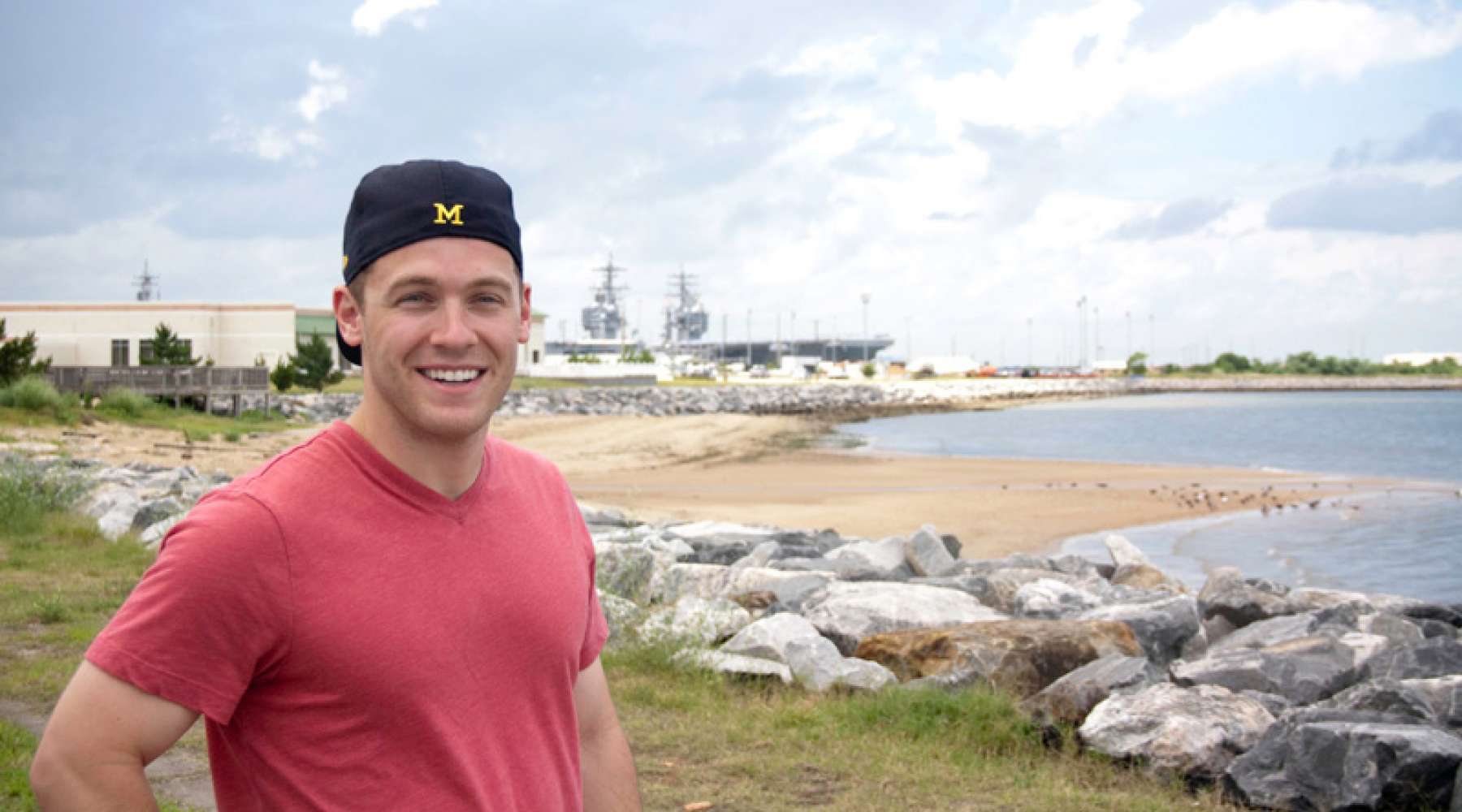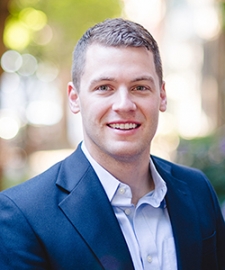
This interview was originally featured in an Accepted blog series featuring interviews with business students, offering readers a behind-the-scenes look at top programs.
 We’d like to get to know you! Where are you from? Where and what did you study as an undergrad?
We’d like to get to know you! Where are you from? Where and what did you study as an undergrad?I’m originally from West Michigan, but I’ve moved around a lot since I finished undergrad at the University of Michigan. There I studied political science. I got a master’s degree from the London School of Economics, and then I became an officer in the U.S. Navy. So other than a few economics classes, I hadn’t taken a single business course before applying to business school. That was a little nerve-wracking, but so far it has been a great experience.
I’m currently a first-year student at the Tuck School of Business at Dartmouth in lovely Hanover, New Hampshire. I expect to graduate next spring.
I chose Tuck because of its incredibly tight-knit community. With the smaller class size comes the opportunity to know more of your fellow students, and the Upper Valley is a beautiful area to do that. There is so much to do—skiing, hiking, biking, checking out great farm-to-table restaurants and craft breweries.
The strong core curriculum was also a driver for coming to Tuck. Again, I didn’t come from a business background; I rarely had even used Excel. Tuck’s core curriculum builds students’ depth of knowledge in several business disciplines from marketing to capital markets in the first year. First-year courses are essentially chosen for you the first few terms (if you don’t test out of them) which I found helpful in establishing a foundation of business knowledge.
My transition has gone really well. Veterans in particular arrive to a strong network at Tuck. Second-year veteran students and veteran Tuck alums are always accessible and eager to provide guidance on everything from where to live in Hanover if you have a family to class selection, case interview preparation, and crafting your narrative so that you can translate your military experience to those in the private sector. Fellow classmates who aren’t coming from the military are also invaluable resources, as they have insights from their own private sector experiences.
Tuck is also extremely generous when it comes to the Yellow Ribbon Program. There is no limit on the number of veterans who can receive Yellow Ribbon funding at Tuck, and the school recently announced an increase in its level of funding under Yellow Ribbon.
The Tuck Veterans Club provides resources and support to veterans at Tuck and their families through integration, recruitment, and veterans’ networking initiatives. Within the community, we raise awareness and create discourse about military and veterans’ issues by taking part in events such as Veteran’s Day talks at local schools, a Tuck vets vs. Ice vets sled hockey game, and our annual Tuck Runs for Vets 5k which benefits a local veteran’s organization.
For prospective veteran business school students, we answer questions that they may have about transitioning, the b-school application process, and are happy to help them make connections. And the Tuck Veterans Club hosts Military Visit Day so that veterans can come see what the Tuck community is all about. There really is no better way of assessing fit than visiting a school and meeting current students.
My favorite part about Tuck thus far has been challenging myself with more complex business classes such as decision science or accounting. I’ve also met a lot of great people along the way.
My advice to applicants is find the program with the best fit. I found that visiting the school is a great way to experience the culture and environment. MBA programs are a huge investment in forgone wages and time, so you want to be in a place that you like and where you can make the most of it. For me, I found that place to be Tuck.
Keal is originally from Holland, Michigan, and he graduated with a Bachelor of Arts in Political Science from the University of Michigan in 2008. He was commissioned as a naval officer from Officer Candidate School in 2011 after working on Capitol Hill and obtaining a Master of Science in International Relations from the London School of Economics. Keal spent just under six years in the Navy prior to coming to Tuck. Keal enjoys skiing, sailing, and spending time with his wife.